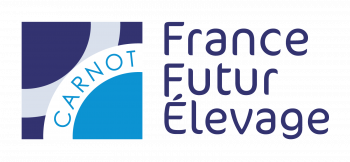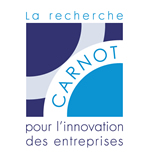Carnot France Futur Élevage

France Futur Élevage is a network of academic research laboratories and agricultural technical institutes dedicated to promoting R&D collaborations and innovation transfer in the livestock industries. Working to develop a sustainable and responsible approach to livestock farming, France Futur Élevage collaborates with stakeholders in the sector to build a range of innovation offerings with strong added value.
Key figures
Fermer
Key figures
| Permanent staff (full-time equivalent) | 1130 |
| PhD Students | 170 |
| Global budget | 118 M€ |
| Partnership incomes with industry | 13 M€ |
Contact
Fermer
Contact
institut Carnot
France Futur Élevage
INRA Transfert
28 rue du docteur Finlay
75015 Paris
Muriel VAYSSIER-TAUSSAT
Director
02 47 42 77 75
Equipe opérationnelle
01 42 75 93 26
contact[a]francefuturelevage.com Email contact
muriel.vayssier-taussat[a]inrae.fr
Parent institutions
Fermer
Parent institutions
- AGROCAMPUS OUEST
- CENTRE DE COOPÉRATION INTERNATIONALE EN RECHERCHE AGRONOMIQUE POUR LE DÉVELOPPEMENT
- ECOLE NATIONALE VÉTÉRINAIRE, AGROALIMENTAIRE ET DE L'ALIMENTATION DE NANTES
- ECOLE NATIONALE VÉTÉRINAIRE DE TOULOUSE
- INSTITUT DE L'ÉLEVAGE
- INSTITUT DU PORC
- INSTITUT NATIONAL DE RECHERCHE POUR L’AGRICULTURE, L’ALIMENTATION ET L’ENVIRONNEMENT
- INSTITUT TECHNIQUE DE L'AVICULTURE
- UNIVERSITÉ DE TOURS

